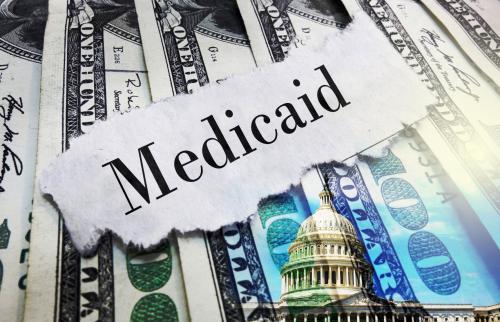In these tough times, the economy needs a stimulus, regardless of the impact on the deficit, says Isabel Sawhill, senior fellow and co-director of the Center on Children and Families. But prudent action needs to be taken to address runaway entitlement spending and that agenda should reconsider our intergenerational spending priorities.
Transcript:
“In 2009 we are probably going to have an enormous deficit. It’s going to be unprecedented. It could well be over a trillion dollars. We already are projecting something like 600 billion dollars for next year before all the bad stuff happened before it was clear that we were in such a deep recession, before all the bailout packages, before any kind of stimulus was added to the mix. So we should all be prepared for a very large deficit, could be as much as 7% of GDP, its going to add very greatly to the national debt, but it’s the right thing to do. Economists like me really don’t worry about deficits during a recessionary period we believe that that’s what’s needed to kick start the economy again. The problem will be the burden that we are leaving for the future and the much larger that also exists once the recession is over, and that long term deficit is being driven by the aging of the population and rising health care costs, and that’s what we should be worried about and we should be worrying about it now because it is upon us and we need to start thinking about how to fix the problem even if we phase it in gradually.”
“…There is absolutely no political courage to take on either Social Security or Medicare, and so I am not naïve enough to think its going to happen anytime soon, but this is where the big dollars are, and there is no other way to get budget under control. We do need to raise revenues, and we do need to sprout the regular discretionary spending the annually appropriated spending including for defense that the government does, but we are not going to be able to do it all. Plug the very large hole we have in the long term budget by one of those means alone. We are going to have to do it all, in other words everything has to be on the table, reigning in entitlements, raising revenues, and scrubbing the rest of the budget. “
“…I think that the big social insurance programs like Medicare and Social Security were put in place in a very different time in this country’s history basically back in the 1930’s and 1960’s when Medicare came in the elderly were one of the poorest segments of the population that’s not true anymore. The poverty rates amongst the elderly are now much lower than they are amongst the working age population and their children also incomes of the elderly have grown more rapidly than the incomes of working age families you basically have stagnant wages recently for working age families, so for all kinds of reasons I think we do need to revise what I call the intergenerational contract and gradually over time reallocate more resources to younger Americans paying for it with some sacrifice on the part of seniors. I am a senior myself, so I can talk about this, but I think a country that gives priority to its old and over its young doesn’t have much of a future.”
The Brookings Institution is committed to quality, independence, and impact.
We are supported by a diverse array of funders. In line with our values and policies, each Brookings publication represents the sole views of its author(s).



Commentary
Economic Stimulus and the Budget Deficit
December 9, 2008